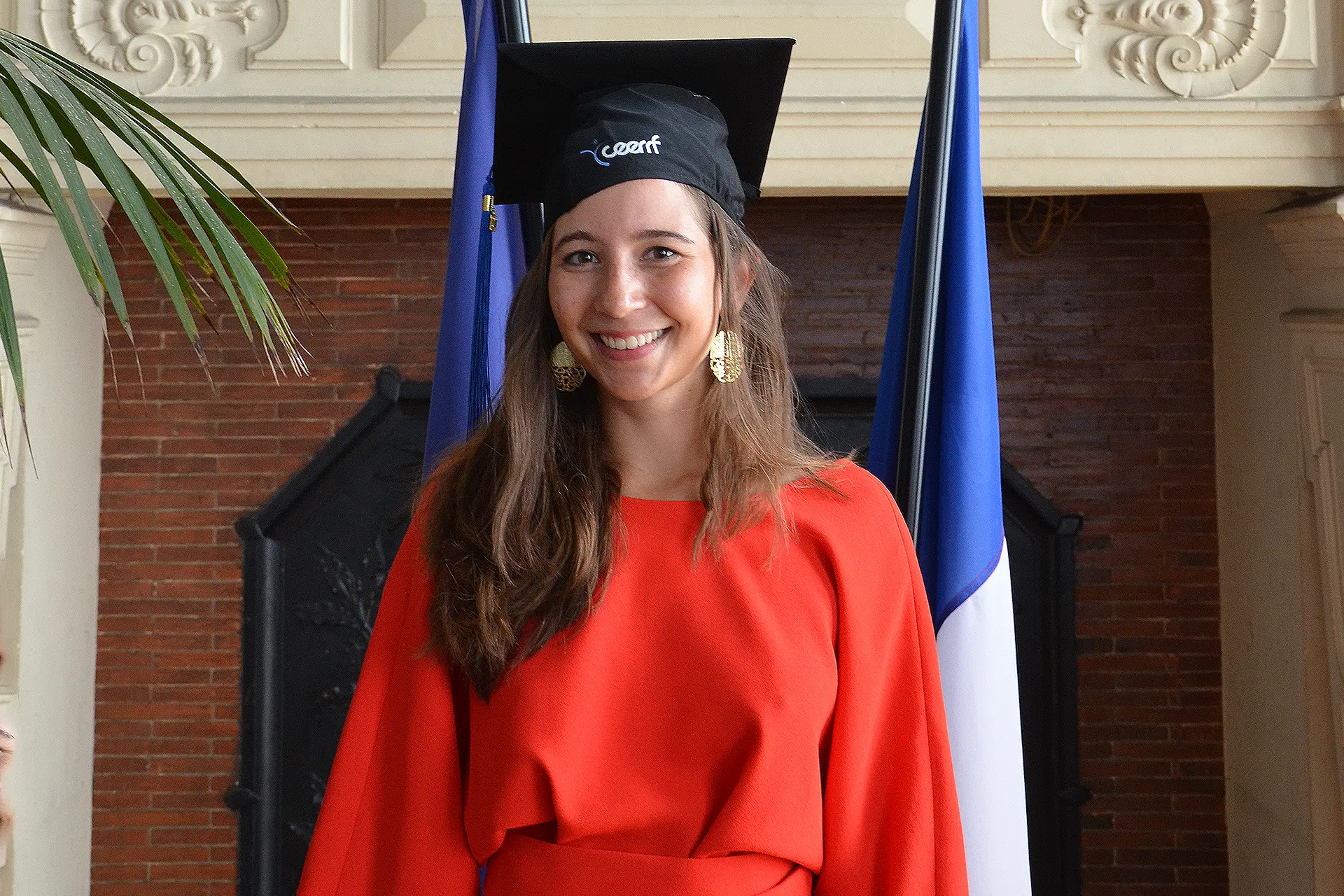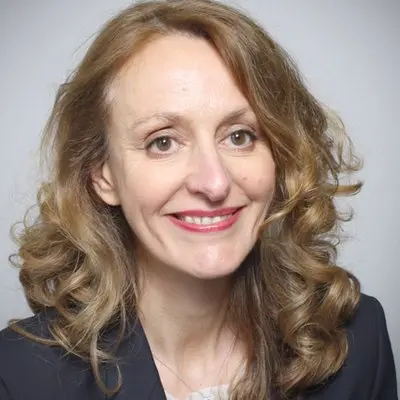CEERRF students publish their work: Solenn Perrin
Solenn Perrin, 2022 graduate of CEERRF, publishes part of her dissertation in a journal specializing in pelvi-perineology. A look back at the experience of the one who was also valedictorian.

Becoming valedictorian, was it a goal set in advance or did it become one later?
Becoming valedictorian was not a goal for me, the only goal I had set for myself was to give the best of myself to end these four years at CEERRF in style.
How do you become valedictorian? What would you like to share with students?
If I could give them some advice, I would choose the following: work for yourself REGULARLY and without comparing yourself to others, set effective work slots, practice a “compulsory” sporting activity. During the fourth year, communication with the thesis director is essential, do not hesitate to keep him informed of the progress of his work. Even if his feedback is not always positive, it is better to know as soon as possible, if you are going in the wrong direction.
What does it do ?
Pleasure, of course, and this encourages me to continue my studies for a master’s degree and, if possible, to orient myself towards research.
What is your dissertation about?
I worked on the impact of obstetric lesions of the anal sphincter and more specifically, on the data reported by patients during the interview for the first physiotherapy assessment six weeks after delivery. Exciting work.
Why did you choose this theme, what was the click?
The theme was imposed on me since I joined a clinical research group of the Paris Saint-Joseph Hospital Group. I have always been interested in pelvi-perineology and I have a taste for research, so it was only natural that I applied for this job.
What difficulties did you encounter and how did you overcome them while writing your thesis?
Stressed by nature, I was always afraid of running out of time, especially since the university degree I was following at the same time required another dissertation on top. I reassured myself by setting achievable short-term goals (for example: completing the analysis of a specific number of articles by the end of the week) and by frequently reviewing the progress of my work. Once again, maintaining regular exchanges with your thesis director is essential, I was lucky to be guided and supported in my work.
How was the educational support?
Very well. We were lucky to have several contacts at the CEERRF. First of all, Mrs. Billecocq (my thesis director) was of an exceptional pedagogy. I also had several appointments with Mrs. Morichon and Mr. Pallot who always gave very good advice. Sometimes I was afraid to make an appointment “for nothing”, and sometimes I was even afraid of being judged on the pace of my work, on my revisions, but it was not so. Do not hesitate to request these individual interviews which are all milestones. Finally, Mr. Cerioli and Mr. Evelinger are also available from time to time for questions concerning deadlines, the format of the dissertation… It is better to ask them questions directly rather than listening to what they say.
Tell us what you think of the experience of working with Ms. Billecocq, what impact has it had on you?
I really enjoyed working with Madame Billecocq. First for her expertise in the field of pelvi-perineology, recognized by her peers, and then for the support she offered me for over a year. She taught me to always look for more, to be precise, to have clinical reasoning, but also to make mistakes and to question myself. It was an intense but extremely rewarding year that pushes me to continue in this field. I also realized the importance of publications for us, masseurs-physiotherapists, in order to favorably develop our profession.
Will the theme of your dissertation influence your future life as a practitioner?
Yes, because I know how to take care of patients with these lesions and ask the right questions during the interrogation.
How does it feel to know that an article about your dissertation will be published by Progrès en Urologie, Pelvi-Périneologie?
I am very happy because it took time and perseverance. Writing an article is fascinating work, but a difficult exercise: you have to succeed in detaching yourself from your expectations and personal points of view to achieve the most objective result possible. Once again, I would like to thank Madame Billecocq, who is the second author.
Since part of your thesis work will be recognized and published, do you plan to continue in research and publish other studies?
I would love to do research. I took a liking to the work of selection, analysis of articles, interpretation. This work is truly rewarding professionally and personally. Affirming or invalidating hypotheses allows, at our level, to refine our expertise, at the level of the profession, to improve our practices to offer the most appropriate care possible, and finally, at the level of the professions. medical and paramedical, to assert our skills.
Testimonial of Sylvie Billecoq, Solenn’s thesis director
I am very happy with this publication which comes to close a double degree course, DE + DU Sorbonne University.
Even happier to hear Solenn say “my 1st DOI!! “. I wish her many more!
My mission is finally complete if the taste for writing and research is transmitted.

Sylvie Billecocq
- Physiotherapist – pelvi-perineal rehabilitation
- President of the scientific council of the Association Française de Rééducation en Pelvi-périnéologie (APRePP)
- Member of Société Interdisciplinaire Francophone d’Urodynamique et de Pelvi-Périnéologie (SIFUD PP)
- Member of International Continence Society (ICS)
- Member of International Urogynecological Association (IUGA)
